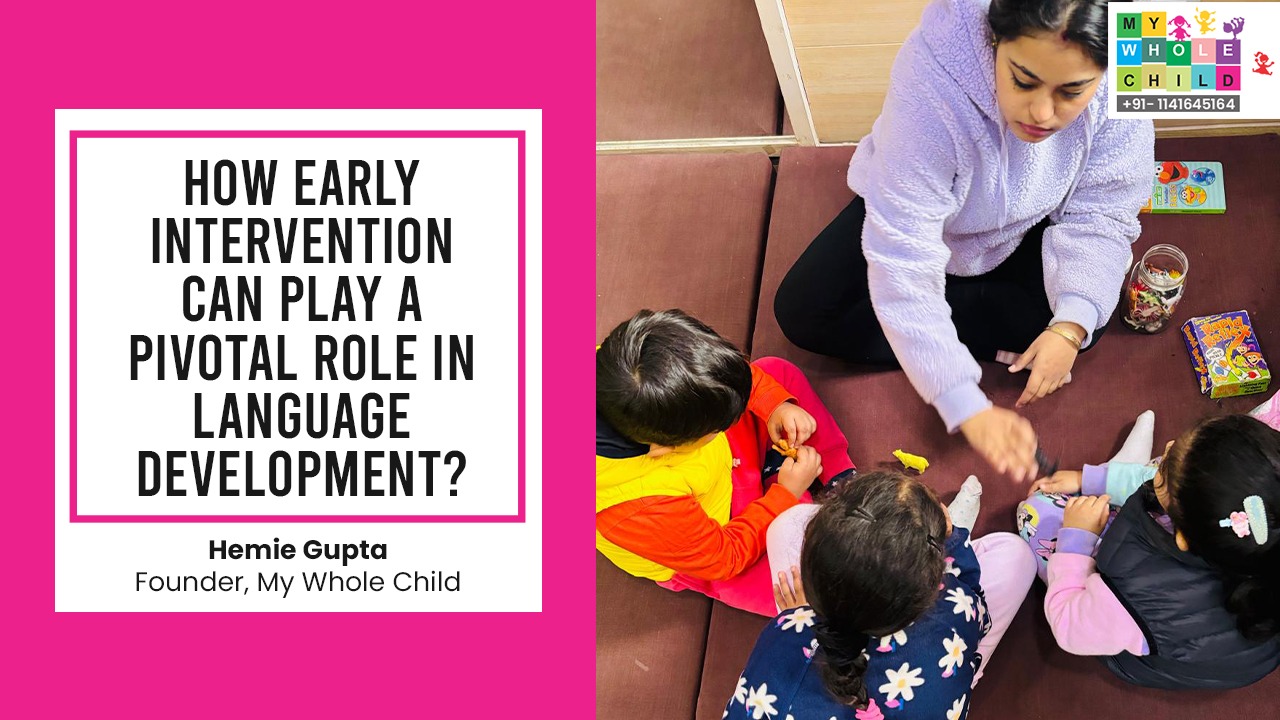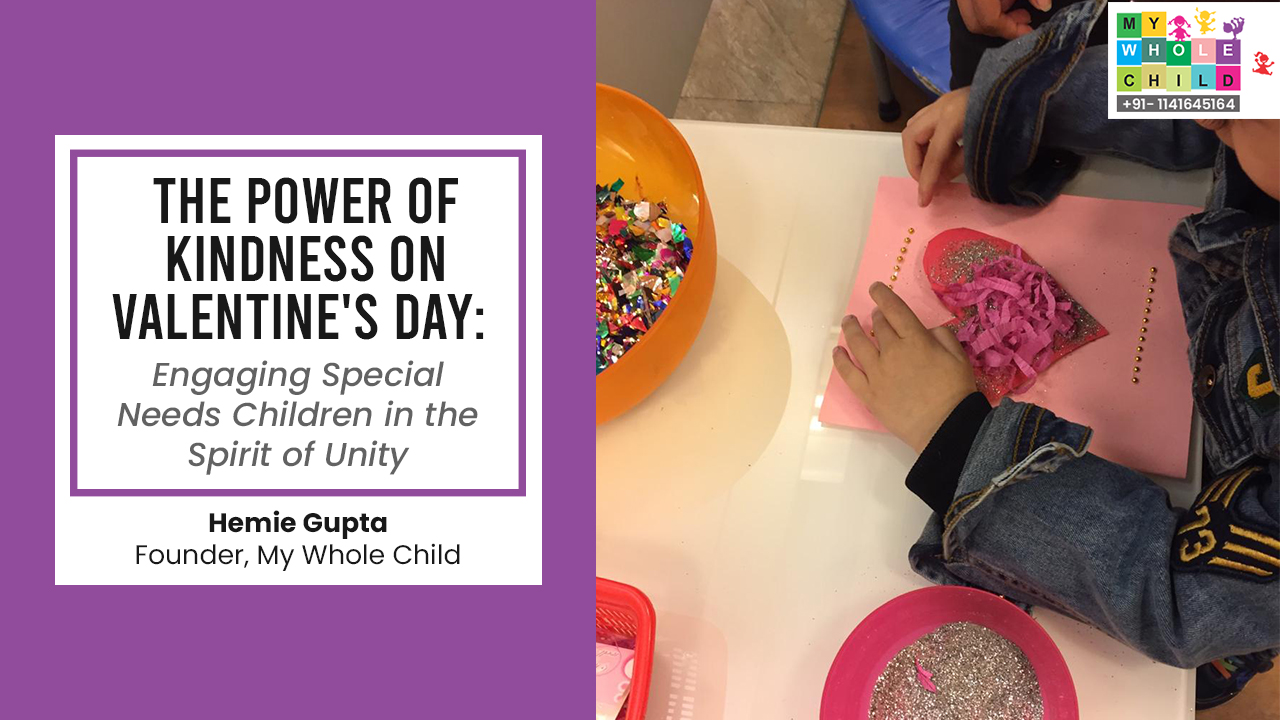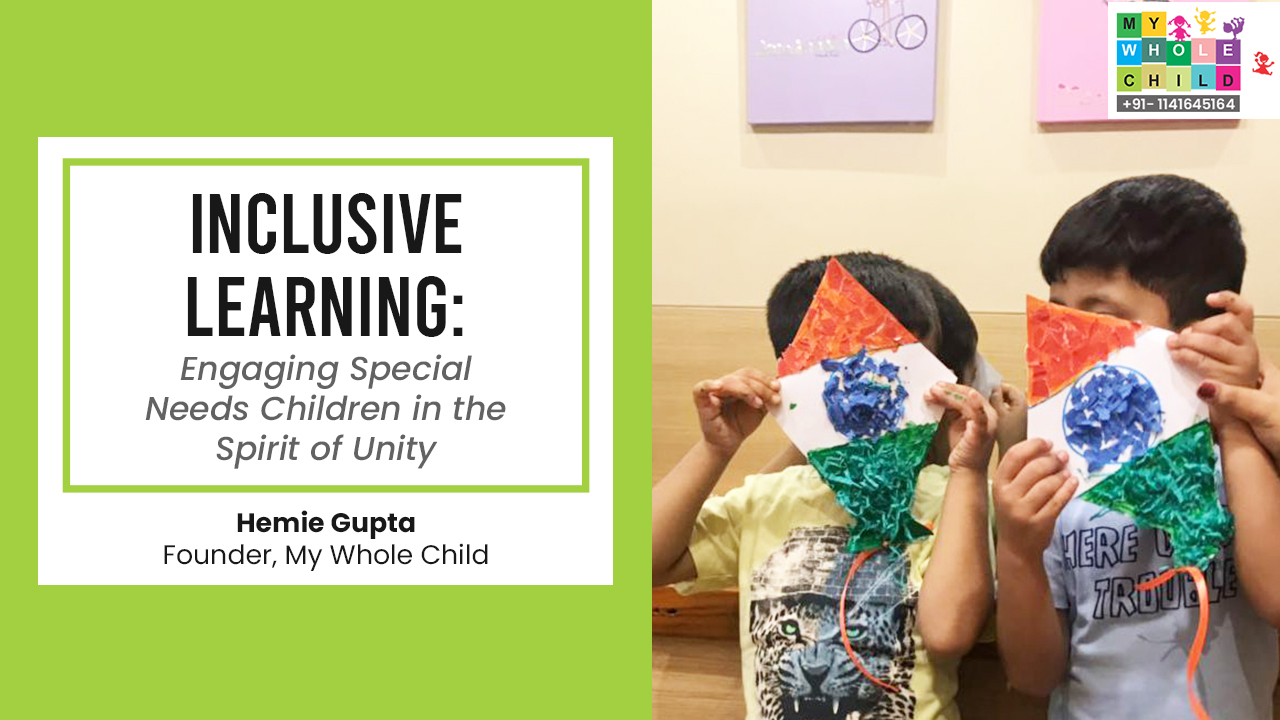mwcgk2@gmail.com S-Block, Gurudwara Nanaksar Premises, Greater Kailash-II, New Delhi-48
How early intervention can play a pivotal role in language development?
admin - January 16, 2025
Early intervention plays a critical role in a child’s language development. It helps provide timely and targeted support to children, particularly during the crucial early years (birth to age 5), when the brain is most receptive to learning and development. Early intervention is essential for children who show signs of language delays or difficulties, as it helps them build foundational skills important for communication and social interaction.
Here are some ways in which early intervention supports language development:
Builds thinking skills: Language development is intertwined with cognitive development. Early interventions often help children understand concepts like time, size, quantity, and relationships, which are foundational for later language and academic learning. Improves Social and Emotional Development
Social Communication: Language is essential for forming social relationships. Early interventions help children learn the social rules of communication, such as taking turns in conversation, understanding nonverbal cues, and using language appropriately in different social contexts such as conflict resolution or frustration tolerance.
Emotional Expression: Communicating feelings, thoughts, and needs is key to emotional regulation and self-esteem. Early intervention can support children in expressing themselves healthily and effectively, reducing frustration and anxiety that can arise from language barriers.
Encourages Parent Involvement: Early intervention often involves training and supporting parents in language-enhancing activities, such as reading together, using interactive language games, or modeling good communication behaviors. This creates a collaborative environment for the child’s growth. Parents can be educated on language development milestones and provided with strategies to promote speech and language skills in daily routines.
Promotes Inclusion
Preventing Isolation: Children with language delays may experience social isolation if they cannot communicate effectively. Early intervention helps ensure they can participate in social interactions, school activities, and peer relationships.
Early intervention is essential for healthy language development in young children. It addresses language delays and fosters overall cognitive, emotional, and social growth. The benefits of timely, targeted support extend far beyond the early years, laying the groundwork for lifelong communication skills, academic achievement, and emotional well-being. The earlier the intervention, the greater the potential for positive outcomes, making it a vital part of a child’s developmental journey.
Latest Posts

Embracing Uniqueness: A Journey of Love and Learning
March 22, 2025
Bringing Color to Every Life: Holi as a Festival of Unity
March 14, 2025
Being a Woman—I am a lot of things together
March 8, 2025

